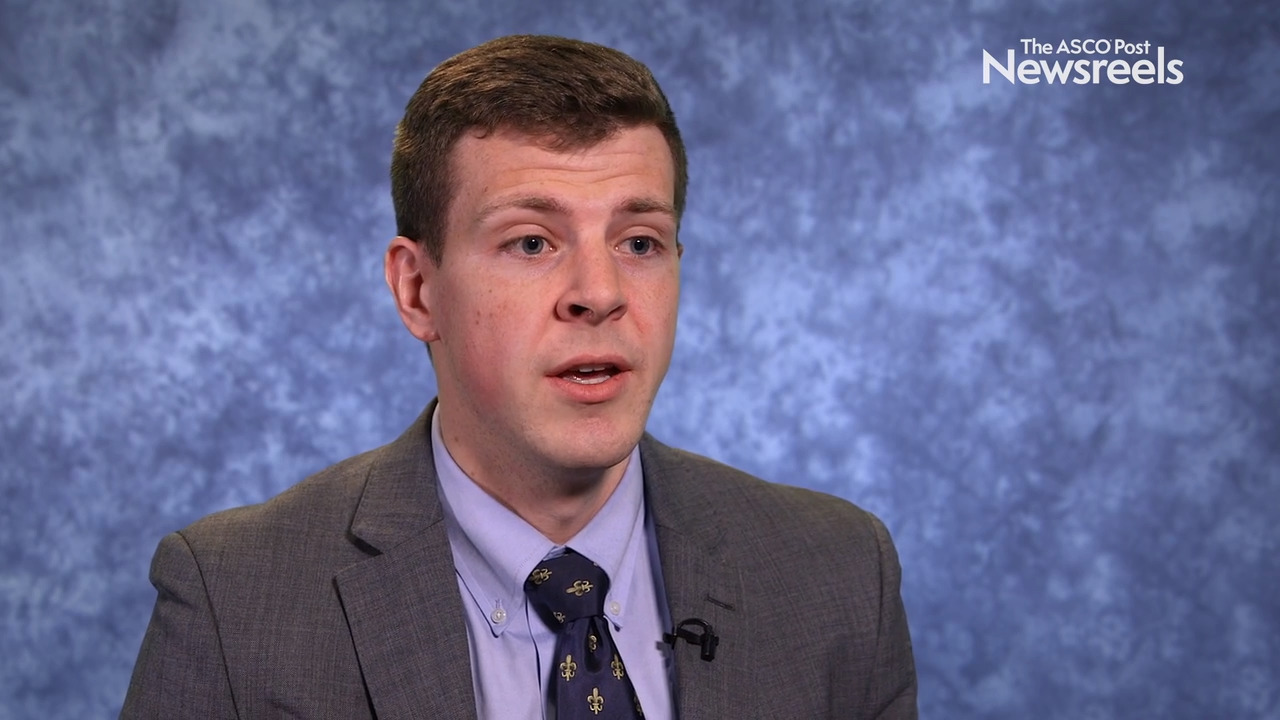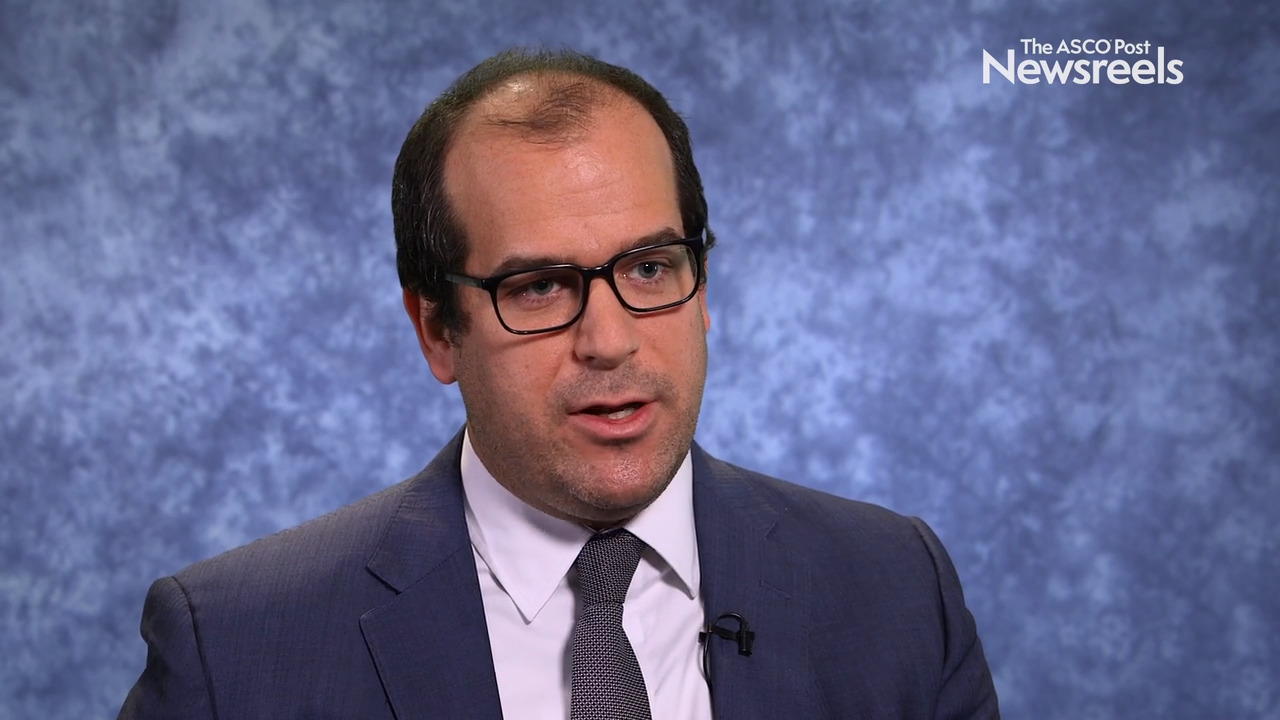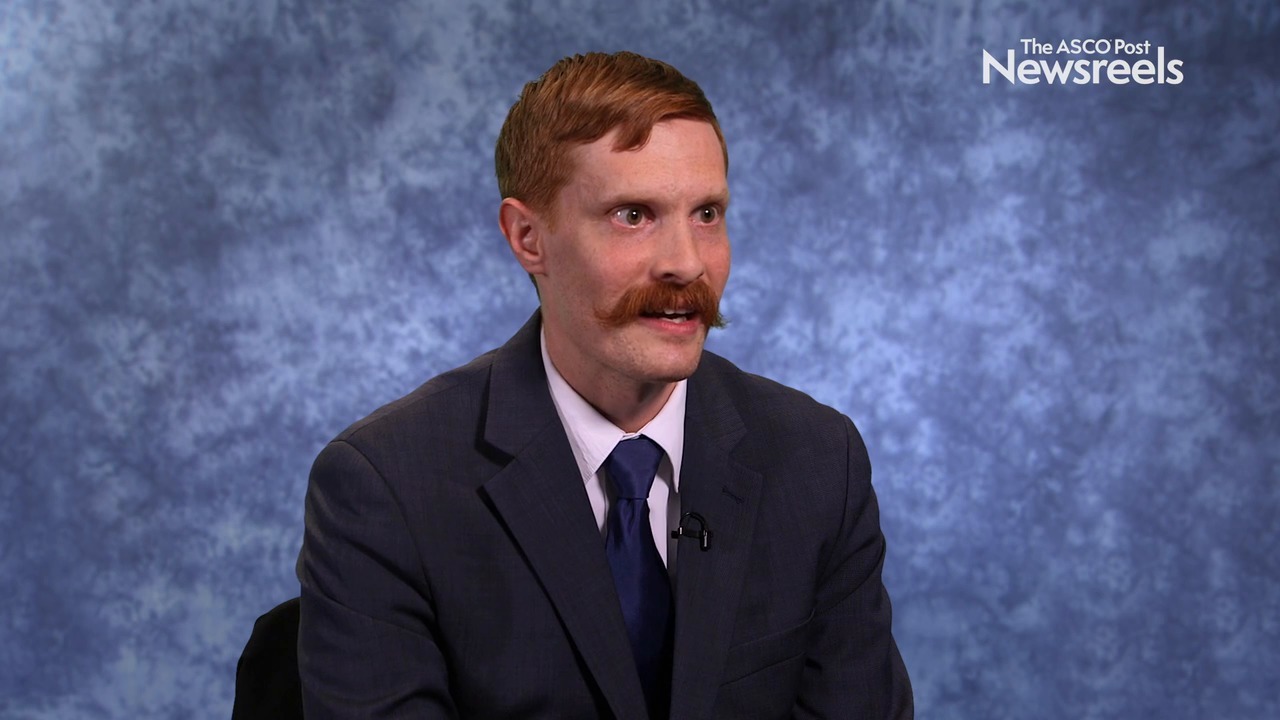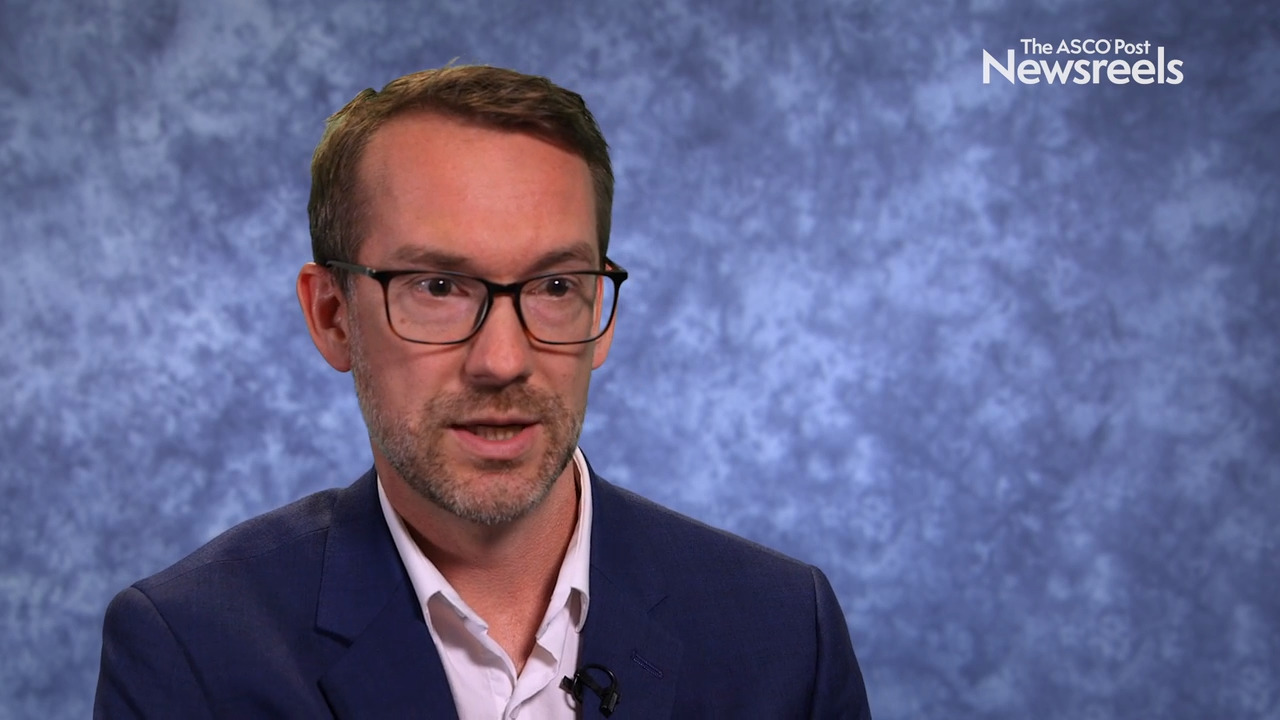Sue Sun Yom, MD, PhD, on Oropharyngeal Cancer: Deintensifying Radiation Therapy Plus Chemotherapy
2019 ASTRO Annual Meeting
Sue Sun Yom, MD, PhD, of the University of California, San Francisco, discusses phase II results showing that swallowing-related quality of life after deintensified chemoradiation therapy may improve in patients with p16-positive, nonsmoking-associated, locoregionally advanced disease (Abstract LBA10).
Justin Barnes, MS, of the St. Louis University School of Medicine, discusses his findings on the risk of suicide, which is higher in patients with cancer than in other adults but can be reduced by health policy interventions, including components of the Affordable Care Act (Abstract LBA9).
David Routman, MD, of the Mayo Clinic, discusses his study findings showing that detectable human papillomavirus circulating tumor DNA in the postoperative setting may be linked to disease progression, which may help improve patient selection for treatment intensity (Abstract LBA5).
Daniel M. Trifiletti, MD, of the Mayo Clinic, discusses study findings showing that, between two different radiation doses (30 Gy/10 fractions vs 37.5 Gy/15 fractions), there was no difference in the time to cognitive failure, tumor control, or overall survival for patients with brain metastases (Abstract 19).
Ryan Phillips, MD, PhD, of Johns Hopkins Medical Institutions, discusses phase II findings suggesting that treatment with stereotactic ablative radiation significantly decreased the risk of disease progression at 6 months and increased progression-free survival (Abstract LBA3).
Robert Olson, MD, of the BC Cancer Centre for the North, discusses a secondary analysis of the SABR-COMET trial, which showed there was a small magnitude decline in quality of life in both arms of the study but no associated detriment with stereotactic ablative radiotherapy (Abstract 148).





